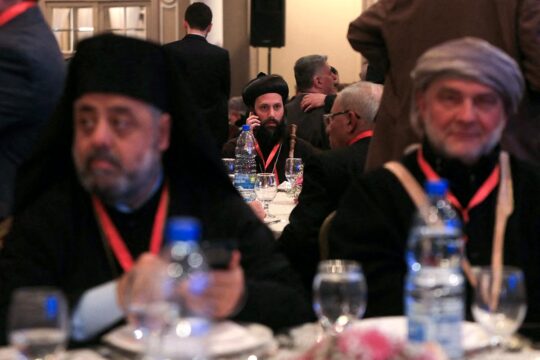To listen to the podcast, click on the "play" button below:
This month Sweden is putting two oil executives on trial, charged with complicity in war crimes committed in what is now South Sudan, between 1999 and 2003.
On Tuesday 5th September, the case against Ludin Oil’s former Chief Executive Ian Lundin and its former vice president, Alex Schneiter, finally begins.
It’s alleged that between 1999 and 2003, the Lundin Oil company paid the Sudanese army and allied militia forces to secure oil operations in southern Sudan. Swedish prosecutors say that once the company found oil in an area known as “Block 5A” in 1999, these military and militia groups led numerous violent operations to take control of the area.
These “systematic” and “indiscriminate attacks”, the prosecutors say included aerial bombardments from transport planes, shooting civilians from helicopter gunships, abducting and plundering civilians and burning entire villages and their crops so that people did not have anything to live of. A period grimly referred to as the ‘oil wars’.
Both men deny the charges.
It has been over ten years since the start of criminal investigations into Lundin Oil and two years since the two executives were formally charged with aiding and abetting war crimes. Back then we did a podcast on the indictments. You can check it out here.
During that episode, we spoke with Egbert Wesselink of the Dutch non-profit organisation PAX. The organisation released a detailed report called Unpaid Debt in 2010 of what had happened and how Lundin executives could be prosecuted under Swedish law.
It’s unusual for corporations and the individuals within them to face consequences for human rights violations. As such, many are hailing this as a rare case of corporate accountability, with comparisons being made to the Nuremberg trials after World War II.
In this episode we speak to Mark Klamberg, Professor of Public International Law at Stockholm University and Tara Van Ho, Senior Lecturer at the University of Essex, about what we can expect from this trial and the broader implications it has for corporations and their executives when it comes to their human rights conduct.
 ASYMMETRICAL HAIRCUTS
ASYMMETRICAL HAIRCUTS
This podcast has been published as part of a partnership between JusticeInfo.net and Asymmetrical Haircuts, a podcast on international justice produced from The Hague by journalists Janet Anderson and Stephanie van den Berg, who retain full control and independence over the contents of the podcast.







